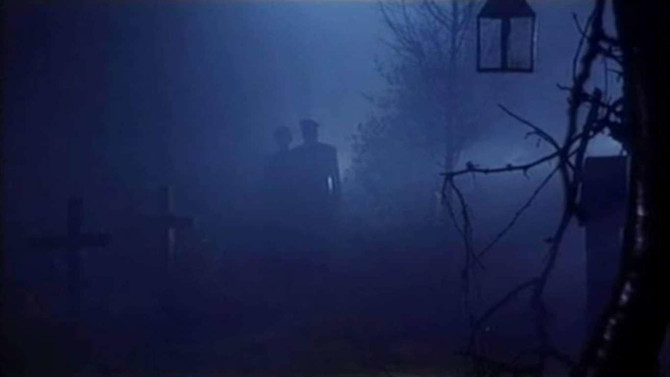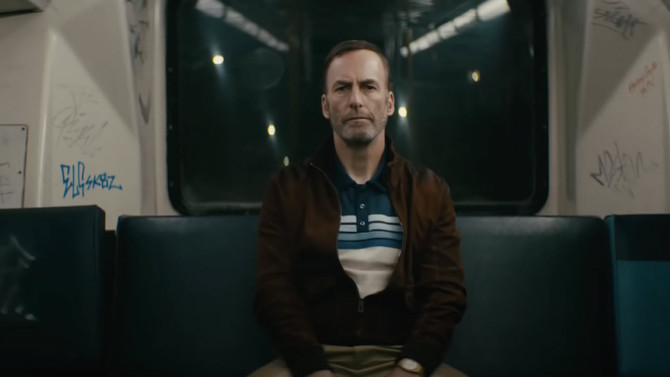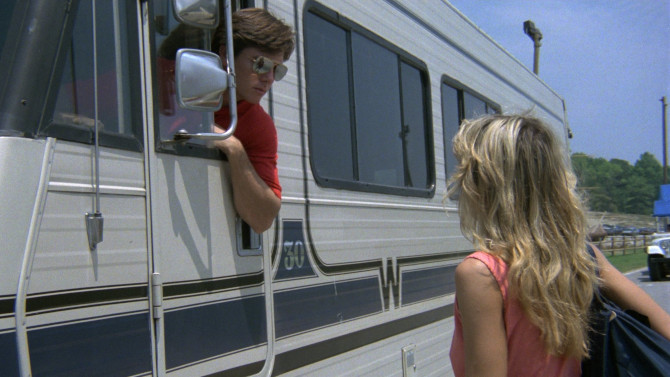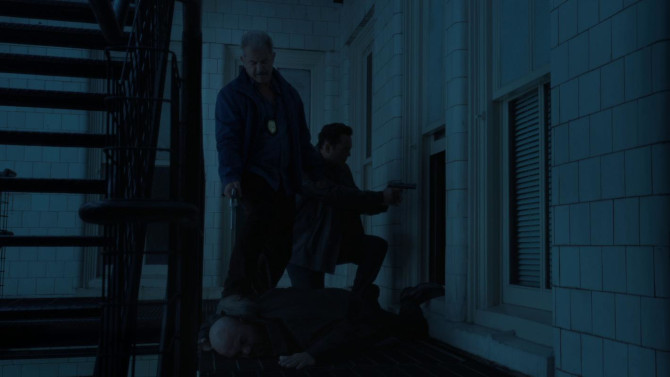
An Impossible Mission
How do you wrap up a franchise like Mission: Impossible? That is, if this even is the final installment... as they’ve made it sound (while at the same time, stars not named ‘Tom Cruise’ pipe up and suggest that might not be so). It has been twenty-nine years, with different writers and visionary directors – from twisty Brian De Palma and the action hair stylings of John Woo, to the lens flares of J.J. Abrams and animation expert Brad Bird, it was only about ten years ago that the franchise decided to opt for The Usual Suspects scribe Christopher McQuarrie for the final four. To return to that opening question once more, you could end with a Sopranos’ style cliffhanger, simply make another entertaining movie like the many before – like Everybody Loves Raymond did it with its final episode, or try to tie everything up in a neat little bow by bringing everything together as the Daniel Craig era did with James Bond. Well, it is definitely more along the lines of the latter example, with some distinct differences.
-

Through Adversity to the Stars
Ad AstraApril 6, 2021Upon viewing Ad Astra some two years after its initial release, it is not completely surprising that it was a failure at the box office. A film rooted in cinema of the sixties and seventies (you should notice connections to 2001: A Space Odyssey and Apocalypse Now), co-writer and director James Gray (Lost City of Z) takes his time building a familial drama set around space travel. Not the adrenaline rush that was Gravity, nor containing the outward scope of Interstellar, Gray’s story (which he co-wrote with Ethan Gross) looks inward at a man struggling with the bond he has with his father. This man is Roy McBride (Brad Pitt), a successful Major who has always lived in the shadow of his legendary father, H. Clifford McBride (Tommy Lee Jones – perfect casting) – the man to lead the Lima Project to the outer reaches of our solar system (specifically Neptune) to do research on possible extraterrestrial life.
-

I Put A Spell On You
The Murder MansionApril 3, 2021Walking a narrow tightrope between giallo and horror, 1972's Murder Mansion, by then first time director Francisco Lara Polop, pulls from films like The Cat and the Canary (either the 1927 or 1939 edition) and House on Haunted Hill (1959), as well as sources like Agatha Christie’s “And Then There Were None” and maybe even Scooby-Doo, to create a bizarre concoction that mostly works. Opening in a most unexpected way for either a giallo or horror feature, motorcycle meets sports car in a blistering country road race, the former driven by calm, cool, and collected Fred (Andrés Resino), while the latter is floored by cocksure Mr. Porter (Franco Fantasia – talk about a name). Only fueling the fire, sultry fashionista Laura (Lisa Leonardi) is spotted hitchhiking. . . the motorist winning the pick-up over the biker, the chase continuing as they weave in and out of sporadic traffic. . . only for the biker to convince her to join him at their next gas station stop (as Mr. Porter is a tad too handsy).
-

Hell Hath No Fury Like A Promising Young Woman Scorned
Promising Young WomanMarch 31, 2021Like a twisted take on the vigilante sub-genre of the 1970s (think Billy Jack or Dirty Harry), writer/director Emerald Fennell turns a lens on modern society with her 2020 film Promising Young Woman – a most thought provoking tale for our time. Following Cassandra (Carey Mulligan – an absolute powerhouse here which has earned her an Oscar nod), she is a woman in her early thirties who is stuck in time. With a tragic event from her past that has forever changed her present and future, the former medical school student now finds herself working a dead end job at a coffee shop for friend Gail (Laverne Cox).
-

Nowhere Man
NobodyMarch 27, 2021“He’s a real nowhere man, sitting in his nowhere land, making all his nowhere plans for nobody. Doesn’t have a point of view, knows not where he’s going to. . .”. A slightly abridged version of the first verse and chorus of The Beatles’ iconic song “Nowhere Man”, these mesmeric lyrics tell the tale of a man afloat in his life with no anchor – lacking the passion, drive, and spirit to make him truly whole. Very much akin to the central character in 2021's Nobody, an action packed film written by Derek Kolstad (the scribe behind the John Wick franchise) and directed by Ilya Naishuller, Hutch Mansell (Bob Odenkirk), is suffering from middle class (and aged) ennui. Though that last statement may sound more like something from Mike Nichols’ The Graduate than an action packed extravaganza, this is a far cry from a character drama.
-

What Could Have Been: Hitcher in the Dark
March 23, 2021In the late 1980s, Italian director Umberto Lenzi, best known for his giallo and horror fare – think Seven Blood-Stained Orchids and Knife of Ice, came to America to work with fellow Italian film maker Joe D’Amato (the man had been Lenzi’s cinematographer on 1970's A Quiet Place to Kill). Making four films together in two years, the one to be looked at here today is 1989's Hitcher in the Dark. . . a bizarre flip-the-script hybrid between the recently successful horror movie The Hitcher (1986) and the ever successful Alfred Hitchcock picture Psycho (1960). Following a mentally disturbed man in his early twenties, Mark Glazer (Joe Balogh) has a rather sick obsession (both sexual and violent) with his mother – the whole issue stemming from the fact she abandoned the family when he was only ten years old to schtup the local tennis pro (I’m sure the athlete is still claiming game, set, and match).
-

Road Rash
Dragged Across ConcreteMarch 17, 2021A tale of its time, writer/director S. Craig Zahler (Bone Tomahawk; Brawl in Cell Block 99), takes us into dangerous terrain. . . no, not some bloody wartime feature or psychotic mystery/thriller, but rather into the realm of conservative and liberal, cops and criminals, race and racism, preconceived notions, and cancel culture, with his 2018 film Dragged Across Concrete. If you’ve seen Zahler’s previous efforts, you’ll likely know what to expect – fantastic, if lengthy dialogue (with a very specific and unique rhythm), combined with shocking moments of violence. Almost written more like a novel than a screenplay, it is a fascinating study. . . but more on that later.
